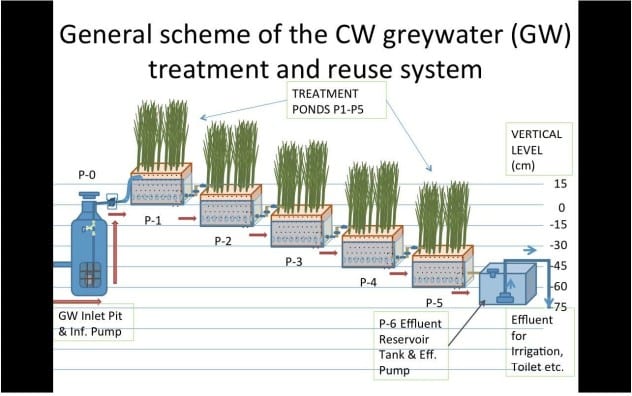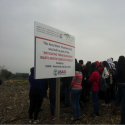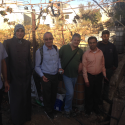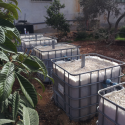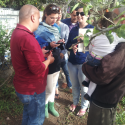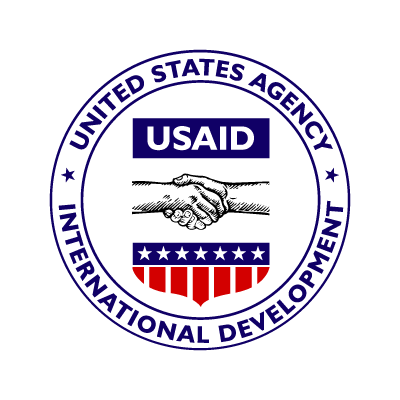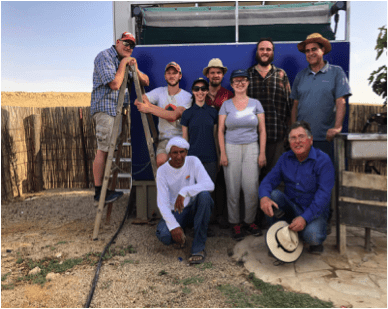
The Center of Transboundary Water Management (CTWM) is looking at methods to reduce wastewater pollution while increasing water supply to households and communities in the West Bank located outside of the region’s wastewater treatment network. Through the construction of greywater recycling systems and the development of a multi-player regional wastewater treatment network, CTWM seeks to find a decentralized solution to this important issue.
Appropriate wastewater management in the off-grid rural sector of Israel and the West Bank is essential. These communities lack the necessary infrastructure to safely treat their wastewater and more importantly to reuse treated wastewater for irrigation in a region fraught with water scarcity. This research seeks to make the case for a decentralized approach to wastewater management and reuse for communities not connected to an energy grid and with poor or non-existent sewerage infrastructure.
The research aims to promote environmental protection of freshwater sources through the promotion of decentralized, low-cost and socially acceptable sanitation treatment of household black (sewage) and gray (washing, showering) water. Furthermore food security is enhanced by providing a secondary source of water for farming through the reuse of the treated greywater for agricultural irrigation. The holistic project approach addresses two elements; (1) technical/infrastructure, and (2) social/communal elements. The research aims to create a sustainable, replicable framework for cross border collaboration intended to expand the entire water cycle; from water resources to wastewater treatment needs in the community. Addressing this water and wastewater problem in a transboundary approach will encourage peace building through cross-boundary cooperation and mapping of waterscapes. Waterscapes are defined as the political, economic, cultural and ideological dimensions of the community’s relationship to water and its productive capacity.
For updated data from our greywater treatment systems visit wateragain.org.
PROJECT DESCRIPTIONS
This project, funded by USAID/Middle East Regional Cooperation, is a partnership between The Arava Institute, the Towns Association for Environmental Quality, located in Sakhnin, Israel, and iGREENs, a Jordanian environmental consulting firm. The objective of the project is to implement decentralized methods of wastewater treatment (such as constructed wetlands and membrane bioreactor systems) on a household scale to enable water reuse for agriculture. This will improve the capacity of small-scale farmers in Jordan, West Bank, and the Bedouin communities of Israel to maximize the value of greywater for irrigation.
The Center is the recipient of a USAID MERC (Middle East Regional Cooperation) grant on greywater monitoring for agriculture in off grid communities in Israel and Jordan. The Center is in partnership with the Towns Association of Environmental Quality in Sachnin, northern Israel and iGreens in Jordan. The project involves online and remote monitoring of greywater treatment and reuse systems in Israel and Jordan and the development of a website and smart phone application for real time water quality monitoring for farmers, regulators and researchers.
This is a project [provisionally] funded by USAID/MERC; a partnership between AIES, iGREENs, and Tafila Technical University in Jordan. This project aims to build capacity within Jordan to construct and maintain decentralized wastewater treatment programs, using smart grid technology to monitor energy production, energy consumption, and effluent quality from a centralized database and monitoring system.
The Center is working in partnership with the Palestinian Wastewater Engineers Group (PWEG) to install an off grid wastewater management utility that will be responsible for the operation and maintenance of off grid wastewater treatment and reuse systems installed by The Center and PWEG. The governance utility will initially serve two Palestinian off grid communities in the Jordan Valley-Al Auja and Marj al Ghazal villages. In the future, the service will expand to more communities in the Jordan Valley and the West Bank.
The objective of this project is to provide an alternative to inefficient household cesspits by connecting households to onsite wastewater treatment and reuse systems using low-cost wastewater treatment technology. This approach both treats wastewater, thereby minimizing the environmental and public health risk, and provides a direct benefit to the community by providing high quality treated wastewater for local agricultural irrigation needs.
This is a cooperative project with the Israeli Ministry of Regional Cooperation that connects a neighborhood of at least ten homes to a neighborhood wastewater treatment and reuse system in Al ‘Auja village. The Center has already installed a total of fourteen household greywater treatment and reuse systems in ‘Auja. This project will demonstrate the scalability of the off-grid wastewater management and reuse approach effectively and practically.
Between Israel and the Palestinian Authority, there’s a concern that untreated wastewater generated by communities in the West Bank flows downstream to Israel. The Center is developing a GIS study to map all the transboundary watersheds and to quantify the wastewater flows in each watershed. This work is in support of the AIES Track II environmental diplomacy initiative.
One of the many projects being carried out by The Center is looking at the use of recycled wastewater in food production and levels of consumer acceptance of these products. In Israel, non-traditional water irrigation practices have been successfully adopted without any known consumer concern about potential health risks associated with using treated wastewater for irrigating food crops. In the U.S., efforts to shift water use from traditional sources to non-traditional sources for food crop irrigation will benefit from a better understanding of the social, behavioral, and economic factors that have contributed to Israel’s advances using these technologies. The main goal of the project is to survey Israeli and American consumers to understand how they respond to the idea of fresh produce being irrigated with recycled water.
Kibbutz Ketura (Funded by Osprey) One of the first greywater recycling and treatment was built on Kibbutz Ketura, a kibbutz located in the Arava desert in Israel and home of the Arava Institute for Environmental Studies (Arava Institute). This systems is connected to some of the Arava Institute student dorms and is treating greywater for 16 students year round. This system, funded by Osprey, is connected to a family drip irrigation kit donated by Israel company, Netafim. Each semester, students from the Arava Institute have the opportunity to carry out independent research projects on the system – everything from water quality monitoring, cultural perceptions on greywater reuse, and plant productivity using reclaimed greywater.
Participants in a Jan 2014 workshop at the Towns Association for Environmental Quality take a tour of USAID-funded greywater treatment site.
Sachnin, Arab town, Israel (funded by USAID) In Sachnin, an Arab town in the north of Israel, USAID has funded the construction of a greywater system at the Towns Association for Environmental Quality (TAEQ). TAEQ is an environmental community center and environmental organization serving the six Arab towns in the Bet Natufa valley of the Galilee. With more than 1,000 visitors a year, this system plays a role in TAEQs work to promote sustainable development and community action.
From right to left Fadi (homeowner), Majdi (Palestinian contractor), Clive Lipchin (Project Director), Shlomo Kimchi (Project Engineer), Sawsan (House of Water and Environment Project lead), Fadi (AJEEC consultant)
Halhul, West Bank (Funded by USAID) A USAID funded greywater system was built in the Palestinian town of Halhul, located north of Hebron. This system was built in the household of seven, and provides the family with 10 cubic meters of water per month, which reduces their need for water from the public network by 30-60%, depending on the time of year. The mother in the family shared with an Arava Institute student that “water is the life for humans, for plants, for all. We pray for water and rain to come. This water is beneficial and we use the water in many purposes.”
This system was constructed in a household in Deir Hatab. The system will irrigate the beautiful citrus and olive trees in their home.
Deir Hatab, West Bank (funded by USAID) Deir Hatab is a Palestinian town to the north east of Nablus. This system serves a family of 8, with one more baby on the way this Spring. The family is using the grey water to irrigate citrus trees and olive trees in their home. Zawata, West Bank (funded by USAID) The last system funded by USAID was constructed in Zawata, a Palestinian town located to the west of Nablus. This family of six uses the water produced by their greywater system to water lemon, apple, fig, and almond trees in their home.
Arava Institute staff and students meet with the family outside of their new greywater system as part of a cost benefit analysis of the greywater project in the West Bank.
Deir Salah, West Bank (funded by USAID) A USAID-funded greywater system was constructed in the Palestinian town of Deir Salah, located to the east of Bethlehem. This system is run through the home of a family of seven. The father of this family is dependent on olive tree wood for his business, as he creates beautiful sculptures sold in local tourism businesses. In addition to providing irrigation for the trees, the family takes advantage of the new market this system as opened for them. As the mother shared with the Arava Institute that “the project is very helpful. We use it for producing crops that we sell in the farmers market.”
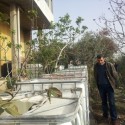
We also work in the communities of Auja, Maj al Ghazal, Wadi Arikha, and Umm Batin.
Osprey Foundation: The Osprey Foundation strives to empower individuals and 
Netafim: Netafim Continuously expanding and improving our smart drip and micro-irrigation offering, Netafim builds on over 45 years of innovation and field-proven success in agricultural irrigation worldwide. Keeping in mind our corporate promise to help customers grow more with less, we are constantly defining new ways of delivering on that pledge. With the world’s most efficient drip and micro-irrigation technology on the one hand, and recognition of the evolving needs of a diverse and dynamic global customer base on the other, our solutions are always more accurate, controlled, consistent and creative.
